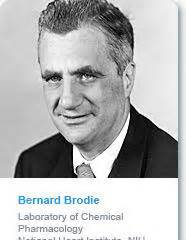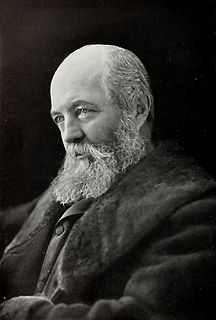A Quote by Lysander Spooner
The purpose and effect of [land titles] have been to maintain, in the hands of robber, or slave holding class, a monopoly of all lands, and, as far as possible, of all other means of creating wealth; and thus to keep the great body of labourers in such a state of poverty and dependence, as would compel them to sell their labour to their tyrants for the lowest prices at which life could be sustained
Quote Topics
Related Quotes
Sexuality is primarily a means of communicating with other people, a way of talking to them, of expressing our feelings about ourselves and them. It is essentially a language, a body language, in which one can express gentleness and affection, anger and resentment, superiority and dependence far more succinctly than would be possible verbally, where expressions are unavoidably abstract and often clumsy.
In proportion as the bourgeoisie, i.e., capital, is developed, in the same proportion is the proletariat, the modern working class, developed - a class of labourers, who live only so long as they find work, and who find work only so long as their labour increases capital. These labourers, who must sell themselves piecemeal, are a commodity, like every other article of commerce, and are consequently exposed to all the vicissitudes of competition, to all the fluctuations of the market.
It is true that so far as wealth gives time for ideal ends and exercise to ideal energies, wealth is better than poverty and ought to be chosen. But wealth does this in only a portion of the actual cases. Elsewhere the desire to gain wealth and the fear to lose it are our chief breeders of cowardice and propagators of corruption. There must be thousands of conjunctures in which a wealth-bound man must be a slave, whilst a man for whom poverty has no terrors becomes a freeman.
When you read Marx (or Jesus) this way, you come to see that real wealth is not material wealth and real poverty is not just the lack of food, shelter, and clothing. Real poverty is the belief that the purpose of life is acquiring wealth and owning things. Real wealth is not the possession of property but the recognition that our deepest need, as human beings, is to keep developing our natural and acquired powers to relate to other human beings.
The form of law which I propose would be as follows: In a state which is desirous of being saved from the greatest of all plagues-not faction, but rather distraction-there should exist among the citizens neither extreme poverty nor, again, excessive wealth, for both are productive of great evil . . . Now the legislator should determine what is to be the limit of poverty or of wealth.
Both ground- rents and the ordinary rent of land are a species of revenue which the owner, in many cases, enjoys without any care or attention of his own. The annual produce of the land and labour of the society, the real wealth and revenue of the great body of the people, might be the same after such a tax as before. Ground-rents, and the ordinary rent of land are, therefore, perhaps the species of revenue which can best bear to have a peculiar tax imposed upon them.
If wealth is accumulated in the hands of a few, either by a feudal or a stock monopoly, it carries the power also; and a government becomes as certainly aristocratical, by a monopoly of wealth, as by a monopoly of arms. A minority, obtaining a majority of wealth or arms in any mode, becomes the government.
I looked at other couples and wondered how they could be so calm about it. They held hands as if they weren't even holding hands. When Steve and I held hands, I had to keep looking down to marvel at it. There was my hand, the same hand I've always had - oh, but look! What is it holding? It's holding Steve's hand! Who is Steve? My three-dimensional boyfriend. Each day I wondered what would happen next. What happens when you stop wanting, when you are happy. I supposed I would go on being happy forever. I knew I would not mess things up by growing bored. I had done that once before.
If exclusive privileges were not granted, and if the financial system would not tend to concentrate wealth, there would be few great fortunes and no quick wealth. When the means of growing rich is divided between a greater number of citizens, wealth will also be more evenly distributed; extreme poverty and extreme wealth would be also rare.
Passive commerce . . . should thus . . . [compel us] to content ourselves with the first price of our commodities, and to see the profits of our trade snatched from us, to enrich our enemies and persecutors. That unequalled spirit of enterprise . . . an inexhaustible mine of national wealth, would be stifled and lost; and poverty and disgrace would overspread a country, which, with wisdom, might make herself the admiration and envy of the world.
The enjoyment of the choicest natural scenes in the country and the means of recreation connected with them is thus a monopoly, in a very peculiar manner, of a very few very rich people. The great mass of society, including those to whom it would be of the greatest benefit, is excluded from it. In the nature of the case private parks can never be used by the mass of the people in any country nor by any considerable number even of the rich, except by the favor of a few, and in dependence on them.






































